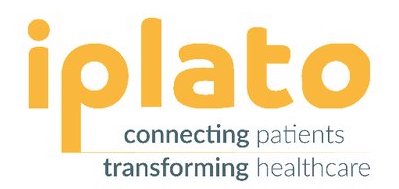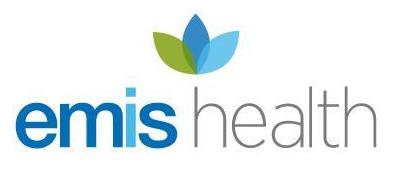Heath+Care / Digital Healthcare Show
The highs and low-down of this 2018’s Health+Care and Digital Healthcare Show
It was those magical 2 days in June, when 10,000 people decend on London’s ExCeL to talk about all things Health, Digital, Transformation, Leadership… actually the list is so long. There is a lot to take in, my one request would be to extended it over a week so that there is some chance of us mere mortals seeing everything we would like to see. As such there is an obligatory disclaimer.
DISCLAIMER: Health+Care and the Digital Healthcare Show are vast and I can therefore only comment on what I saw. If you saw something that you thought deserves a special mention - add it on below in the comments.
It was a fantastic 2 days and really great to see what is happening in I am going to give the top 3 presentations I saw whilst at the conference. I also have a couple of special mentions for some of the stalls that were there also.
Number 3
How will Artificial Intelligence in healthcare impact patient outcomes in the the future?
Dominic Cushnan, Ameet Bakhai, Andy Wilkins
This was a great talk and presentation, but special mention must go to Andy Wilkins who gave a fantastic presentation. Its essentially what we are all thinking, he just wrote it all down and described it in a way we can understand. He outlined how a move to improved health prevention and disease management will save the NHS. He spoke about a Digital Health Coach, which from what I understand sits in a preventative role rather than a diagnostic role.
He outlined his obstacles to this vision and I think they are common to all of us trying to promote integration of new Digital Health technologies:
- System Framing:
- Making prevention and population health a priority
- Integrating prevention, healthcare and social care into a unified care system
- Taking a longer term investment perspective
- Public Engagement
- Making the case for self-management of health and wellbeing
- Acceptance of sensors
- Acceptance of sharing data
- Acceptance of an AI powered digital health coach
- New Healthcare Ecosystem
- New data skills and capabilities
- New medical and wellbeing skills
- Transformational funding
- New clinical care models
- New funding and governance models
- New clinical organisational structures
- Person-centred data strategy
- Radical new innovation
He talked about the way to overcome these barriers is to start with creating a movement for change and highlighted the site beyond the fog. I think this talk really resonated with what I am trying to do and I have no doubt our paths will cross in the future.
Number 2
Supporting digital health innovation: progress and learnings from Chelsea and Westminster NHS and it’s Charity CW+
Dr Lawrence Petalidis presented his work at the Charity CW+ - It was fantastic to hear the great work and projects that CW+ had been funding and the teams he had been working with to encourage diffusion and adoption of technologies through the NHS.
He spoke about his work with the NHS Accelerator Scheme and one innovation that could really benefit patients. The “ostom-I” was designed to improve the lives of patients with an excretory stoma. An excretory stoma is created following an surgical operation, an opening is made in the abdomen allowing waste to pass out of it from the body.
The “ostom-I” sensor is clipped on to a patient’s ostomy pouch and using Bluetooth, alerts the patient when it needs replacing. It also, perhaps more importantly, relays data on discharge rates and volume to the patient and their clinical team in an attempt to improve quality of life, including self-management, sleep quality, self-confidence, but also improve clinical outcomes with regards acute kidney injury and hospital readmission rates.
The thing about the talk that really resonated with me, was not the technological innovations, but the culture that was being created. It was a culture of small changes, which paved the way to more changes, that then develop some momentum and start to disrupt the culture of two hospitals in London.
And at Number 1
Using new technology in treating children
Dr Shankar Sridharan, who is a paediatric cardiologist at GOSH presented a vision of what true collaboration and an innovative culture could look like. He presented the hospitals development DRIVE (Digital, Research, Informatics and Virtual Environments).
DRIVE is a unit dedicated to research and evaluation of new technology and data analysis for healthcare and is formed from a partnership between GOSH, UCL, UCLPartners, Microsoft and Samsung. It allows for the collaboration between Academics, Clinicians and Computer Science experts to leverage technology and create some amazing innovations that can be rapidly prototyped and introduced into the NHS.
Dr Sridharan outlined how a Minecraft replica of GOSH had been created to allow children to explore it before they attended, reducing anxiety before they came to their appointment. How VR could be used to allow a 3D world could be explored and interacted with, so familiar faces could be seen before an appointment. There were many other innovations including a soft toy that could be texted by parents.
Their innovations were many and the presentation was fantastic, it showed what is capable when a community of innovators can come together and really create a culture of change.
Special mentions go to…
Professor Adrian Hopgood for his discussion in the chaired debate AI: The art of the possible in health and social care. He gave a really tempered and balanced conversation about AI. He described “Augmented intelligence” - computers working with clinicians rather than instead of clinicians. A vision that aligns completely with my own view.
Interestingly he also shared another view that I hold, the view that machine learning and deep learning are not going to be the only solution to AI in health. Very much as clinicians do not use one system to make a diagnosis, our augmented systems must ‘understand this’ and will be a hybrid of approaches.
 iPlato @iPLATOhealth - I had a great chat with Sarah Bundy on the iPlato stand - they are doing some really great things with regards to empowering the patient to get the right information at the right time and to see the right person to help them with their health problem. Their platform has been working in my CCG for a while now and I hadn’t even realised, they have been doing some great work to reduce DNAs and missed appointments in General Practice.
iPlato @iPLATOhealth - I had a great chat with Sarah Bundy on the iPlato stand - they are doing some really great things with regards to empowering the patient to get the right information at the right time and to see the right person to help them with their health problem. Their platform has been working in my CCG for a while now and I hadn’t even realised, they have been doing some great work to reduce DNAs and missed appointments in General Practice.
Their tools, however, are expanding and they have so much more to offer. They really are a group to watch out for in the future.
 EMIS Health @EMISHealth - EMIS have been integral to Primary Care services for a long time and have really push forwards on trying to integrate services across the Primary Care setting, but also into Secondary Care.
EMIS Health @EMISHealth - EMIS have been integral to Primary Care services for a long time and have really push forwards on trying to integrate services across the Primary Care setting, but also into Secondary Care.
The exciting prospect I learnt was their willingness to integrate through their API services and even offer training to get up to speed. From a purely selfish point of view this is excellent news, too long has the NHS been fragmented through its IT systems. I want my “Augmented Physician” to “see” what I see when I look at the notes and this is a fantastic way to aid this.
Reflections
So a really exciting 2 days. I have realised that there are groups and communities out there really trying to make a difference in the NHS. There are a lot of fantastic ideas, there are a lot of big ideas, but I think the the take home message for me is:
- Understand and descibe your vision
- Develop a Community of like-minded people
- Understand the challenges
- Make small steps, small increments of change and reflect on the successes of these
Subscribe to digitaldoc
Get the latest posts delivered right to your inbox